CW Developer Network.
Quantum computing is complex. Content Continues Below.

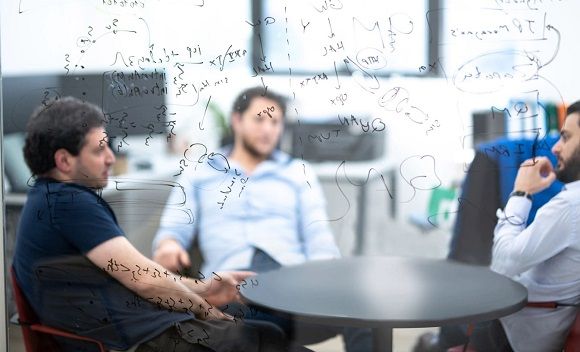
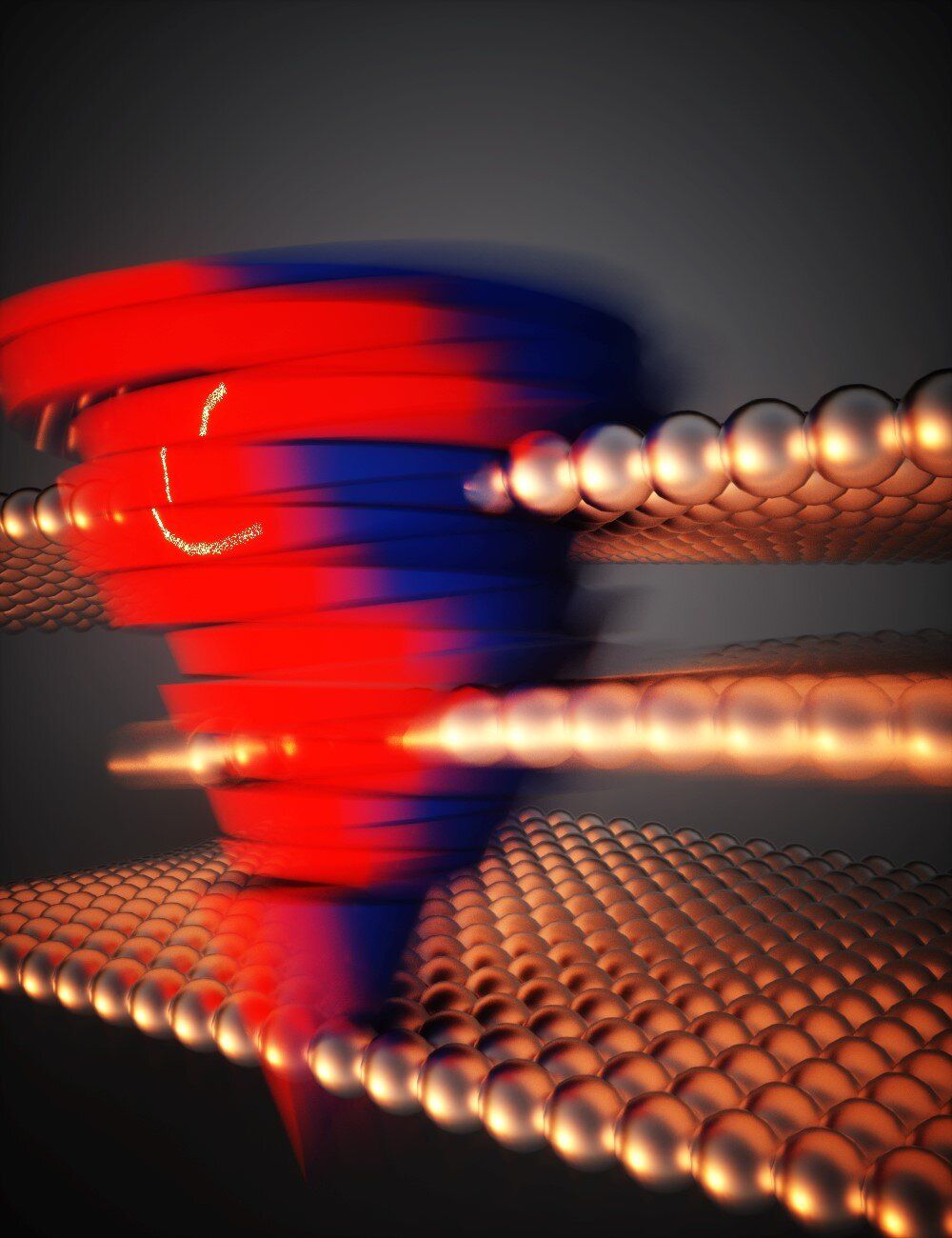
The emergence of artificial intelligence and machine learning techniques is changing the world dramatically with novel applications such as internet of things, autonomous vehicles, real-time imaging processing and big data analytics in healthcare. In 2020, the global data volume is estimated to reach 44 Zettabytes, and it will continue to grow beyond the current capacity of computing and storage devices. At the same time, the related electricity consumption will increase 15 times by 2030, swallowing 8% of the global energy demand. Therefore, reducing energy consumption and increasing speed of information storage technology is in urgent need.
Berkeley researchers led by HKU President Professor Xiang Zhang when he was in Berkeley, in collaboration with Professor Aaron Lindenberg’s team at Stanford University, invented a new data storage method: They make odd numbered layers slide relative to even-number layers in tungsten ditelluride, which is only 3nm thick. The arrangement of these atomic layers represents 0 and 1 for data storage. These researchers creatively make use of quantum geometry: Berry curvature, to read information out. Therefore, this material platform works ideally for memory, with independent ‘write’ and ‘read’ operation. The energy consumption using this novel data storage method can be over 100 times less than the traditional method.
This work is a conceptual innovation for non-volatile storage types and can potentially bring technological revolution. For the first time, the researchers prove that two-dimensional semi-metals, going beyond traditional silicon material, can be used for information storage and reading. This work was published in the latest issue of the journal Nature Physics. Compared with the existing non-volatile (NVW) memory, this new material platform is expected to increase storage speed by two orders and decrease energy cost by three orders, and it can greatly facilitate the realization of emerging in-memory computing and neural network computing.


The technology behind the quantum computers of the future is fast developing, with several different approaches in progress. Many of the strategies, or “blueprints,” for quantum computers rely on atoms or artificial atom-like electrical circuits. In a new theoretical study in the journal Physical Review X, a group of physicists at Caltech demonstrates the benefits of a lesser-studied approach that relies not on atoms but molecules.
“In the quantum world, we have several blueprints on the table and we are simultaneously improving all of them,” says lead author Victor Albert, the Lee A. DuBridge Postdoctoral Scholar in Theoretical Physics. “People have been thinking about using molecules to encode information since 2001, but now we are showing how molecules, which are more complex than atoms, could lead to fewer errors in quantum computing.”
At the heart of quantum computers are what are known as qubits. These are similar to the bits in classical computers, but unlike classical bits they can experience a bizarre phenomenon known as superposition in which they exist in two states or more at once. Like the famous Schrödinger’s cat thought experiment, which describes a cat that is both dead and alive at the same time, particles can exist in multiple states at once. The phenomenon of superposition is at the heart of quantum computing: the fact that qubits can take on many forms simultaneously means that they have exponentially more computing power than classical bits.
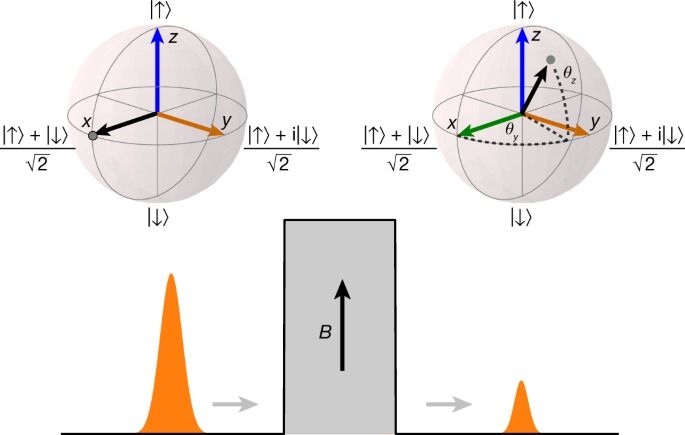
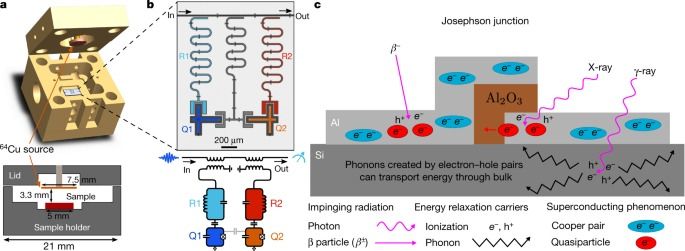
Technologies that rely on quantum bits (qubits) require long coherence times and high-fidelity operations1. Superconducting qubits are one of the leading platforms for achieving these objectives2,3. However, the coherence of superconducting qubits is affected by the breaking of Cooper pairs of electrons4,5,6. The experimentally observed density of the broken Cooper pairs, referred to as quasiparticles, is orders of magnitude higher than the value predicted at equilibrium by the Bardeen–Cooper–Schrieffer theory of superconductivity7,8,9. Previous work10,11,12 has shown that infrared photons considerably increase the quasiparticle density, yet even in the best-isolated systems, it remains much higher10 than expected, suggesting that another generation mechanism exists13. Here we provide evidence that ionizing radiation from environmental radioactive materials and cosmic rays contributes to this observed difference. The effect of ionizing radiation leads to an elevated quasiparticle density, which we predict would ultimately limit the coherence times of superconducting qubits of the type measured here to milliseconds. We further demonstrate that radiation shielding reduces the flux of ionizing radiation and thereby increases the energy-relaxation time. Albeit a small effect for today’s qubits, reducing or mitigating the impact of ionizing radiation will be critical for realizing fault-tolerant superconducting quantum computers.
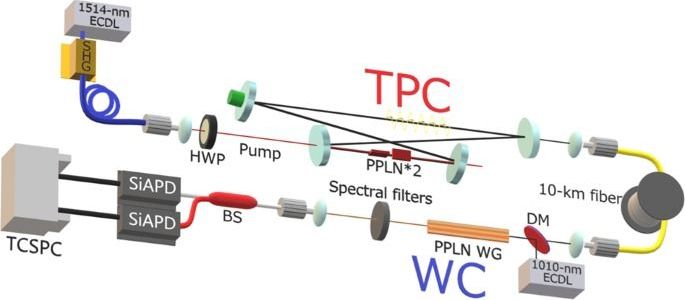
Quantum technologies have seen a remarkable development in recent years and are expected to contribute to quantum internet technologies. The authors present an experimental implementation over commercial telecom fibres of a two-photon comb source for quantum communications with long coherence times and narrow bandwidth, which is used in a 20 km distribution experiment to show the presence of remote two-photon correlations.
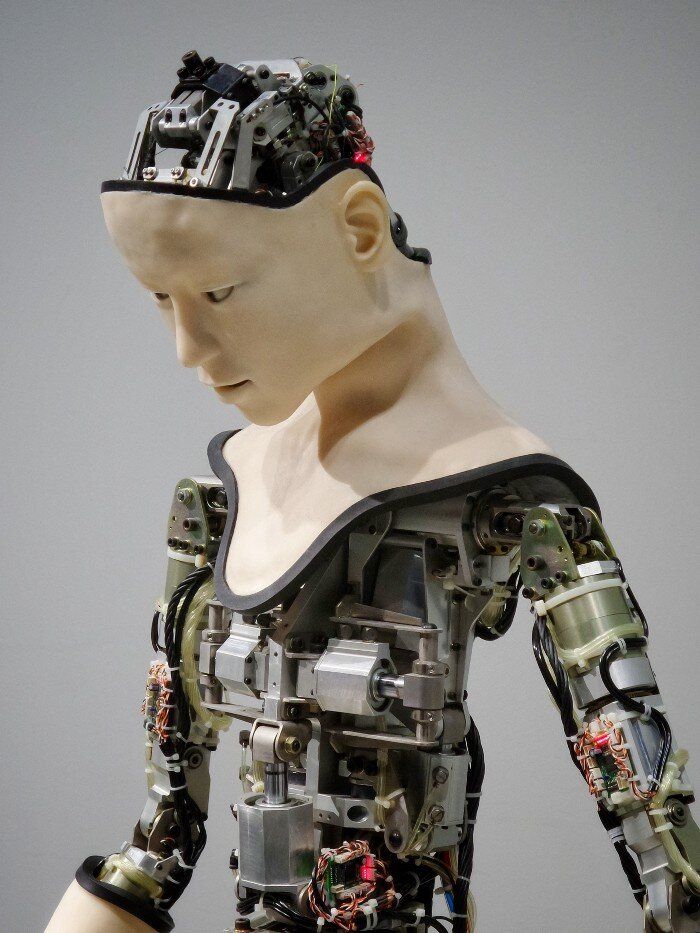
AI has found religion.
Or at least one engineer and quantum researcher has brought a bit of religion to his AI project.
George Davila Durendal fed the entire text of the King James Bible into his algorithms designed to churn out dialogue in the style of the Old Testament.
Durendal claimed his project, AI Jesus, learned and absorbed “every word more thoroughly than all the monks of all the monasteries that have ever been,” offering a little biblical style verse of his own.
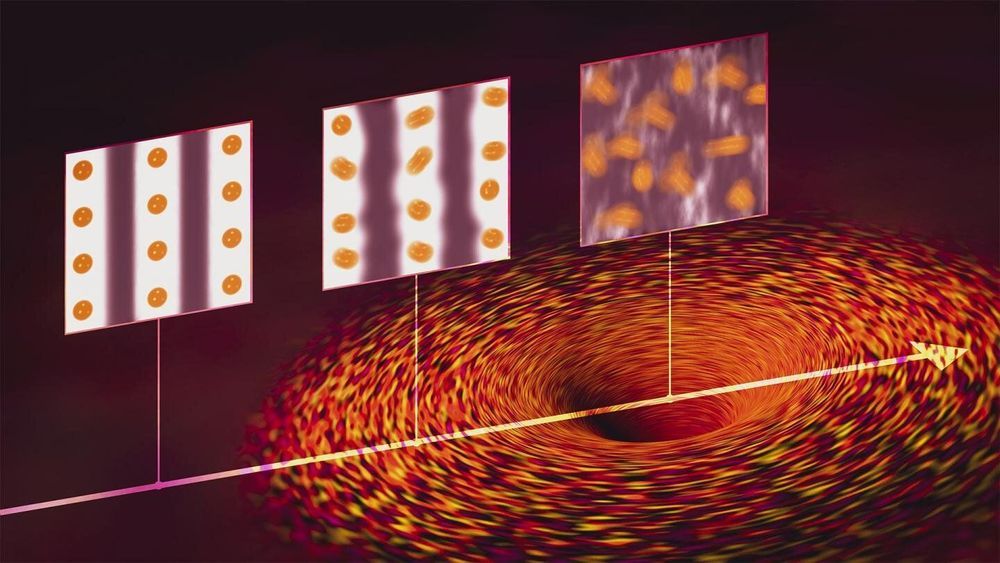
Among all the curious states of matter that can coexist in a quantum material, jostling for preeminence as temperature, electron density and other factors change, some scientists think a particularly weird juxtaposition exists at a single intersection of factors, called the quantum critical point or QCP.
“Quantum critical points are a very hot issue and interesting for many problems,” says Wei-Sheng Lee, a staff scientist at the Department of Energy’s SLAC National Accelerator Laboratory and investigator with the Stanford Institute for Materials and Energy Sciences (SIMES). “Some suggest that they’re even analogous to black holes in the sense that they are singularities—point-like intersections between different states of matter in a quantum material—where you can get all sorts of very strange electron behavior as you approach them.”
Lee and his collaborators reported in Nature Physics today that they have found strong evidence that QCPs and their associated fluctuations exist. They used a technique called resonant inelastic X-ray scattering (RIXS) to probe the electronic behavior of a copper oxide material, or cuprate, that conducts electricity with perfect efficiency at relatively high temperatures.

If a tree falls in a forest and no one is there to hear it, does it make a sound? Perhaps not, some say.
And if someone is there to hear it? If you think that means it obviously did make a sound, you might need to revise that opinion.
We have found a new paradox in quantum mechanics – one of our two most fundamental scientific theories, together with Einstein’s theory of relativity – that throws doubt on some common-sense ideas about physical reality.